After death threats and accusations, women are returning to video games – and the games themselves are changing
Holly Baxter wasn’t immediately convinced when she was introduced to the Bloody Baron, but now she’s a convert to the world of ever more nuanced video games

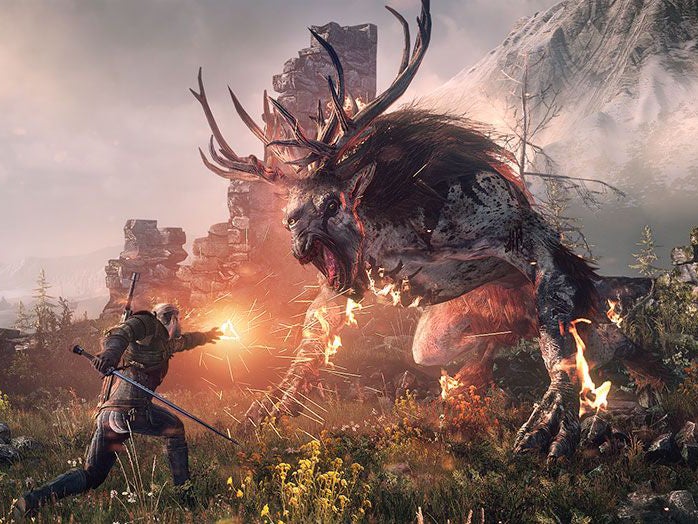
The Bloody Baron has a mission for you: he wants you to find his wife and daughter. They went missing, he says, after his castle was broken into and ransacked. They were probably kidnapped during a burglary.
Because you’re a non-human magical being called a witcher, you can use your senses to search the castle for signs of who the kidnappers were. But when you investigate, something seems amiss: there is widespread destruction, but nothing has been taken. The stench of alcohol is everywhere. A protective talisman is hidden under the floorboards in the room the baron’s wife, Anna, shares with him, as if she had known well in advance that she was in danger.
You go to the local pellar – the man who Anna bought the talisman from – and find out that she had come to see him for “protection” a few weeks earlier.
Back at the Bloody Baron’s fort, you confront the man who gave you the mission. When you first met him, he’d been waxing lyrical about his love for Anna and his daughter Tamara. He’d talked of a close, loving family suddenly torn asunder by a random incident perpetrated by vicious, jealous outsiders. Now it looks like the danger may have been within all along.
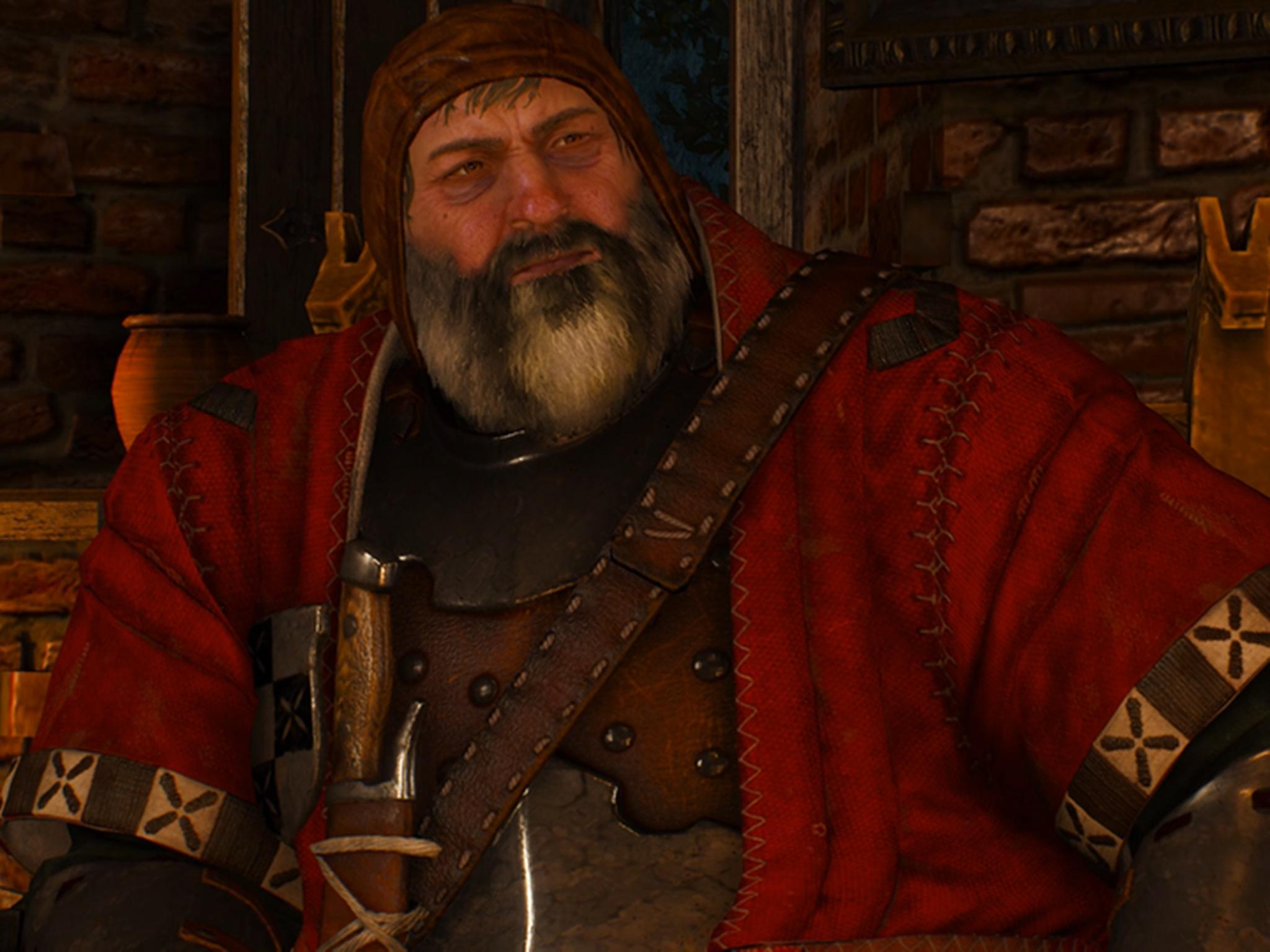
Villagers along the road have spoken to you of the baron’s notorious alcoholism; recently, he set fire to a stable in a booze-filled rage and a stable-hand narrowly avoided burning to death. The smell of alcohol throughout the ravaged house comes back to you.
The baron’s done with lying. After a violent altercation where you accuse him of setting you up, he admits that his wife and daughter left of their own accord. He’s a drunk, he admits. He’s been a bad husband. They call him the Bloody Baron because he’s spent his career being hired for warfare across the country, regularly leading his men into doomed conflicts for spurious ideologies.
Watching your comrades die for nothing takes its toll. He turned to alcohol, he admits, to block out the memories and the voice of his conscience as the young fell around him. The addiction spiralled out of control. He’d regularly row violently with Anna in front of Tamara. In the latest incident – when Anna was three months’ pregnant – he’d shoved her so hard that she miscarried their second child soon after.
In the magical world, actions like these don’t just have emotional consequences. The baron – whose real name, he confides, is Philip – is now being haunted by a monstrous undead beast called a botchling. This large-eyed, purple-skinned foetus crawls round the grounds of the castle, gnashing its razor-sharp teeth and gurgling maliciously. It has appeared because Philip, distraught and remorseful, didn’t give the miscarried baby a proper burial, but instead abandoned it in a ditch in a bout of self-disgust after causing Anna such grievous injury. Not long after that happened, Anna fled with her daughter in tow.
The first moral quandary you face is whether to help Philip find his wife and daughter, considering what you now know to be true about his backstory. He has precious information which could help you track down your own lost child, and he’s only willing to give it up if you agree to search out Anna and Tamara. But first you have to help him atone for the miscarriage by naming the baby, apologising to it for the mistreatment and participating in a solemn burial ritual which will transform the demon-like botchling into a benevolent ghost called a lubberkin; otherwise the haunting could lead to the entire village’s destruction.
You think you might at least agree to get on Anna and Tamara’s trail – after all, even if you do find out what happened to them, you don’t have to tell Philip where they are. Philip cries with regret, tells you he’s ready to treat his family better, begs you again to bring them home. The lubberkin points you in the direction of its mother before vanishing into thin air. You set off towards a swamp.
This is only the beginning of the ill-fated family’s tale. In the swamp, you learn that the pregnant Anna made a pact with three witches to abort the baby in exchange for a year’s servitude: Philip’s violence wasn’t the source of the miscarriage after all. Anna has lost her mind in the swamp, catering to the witches’ whims and fattening children for their dinner.
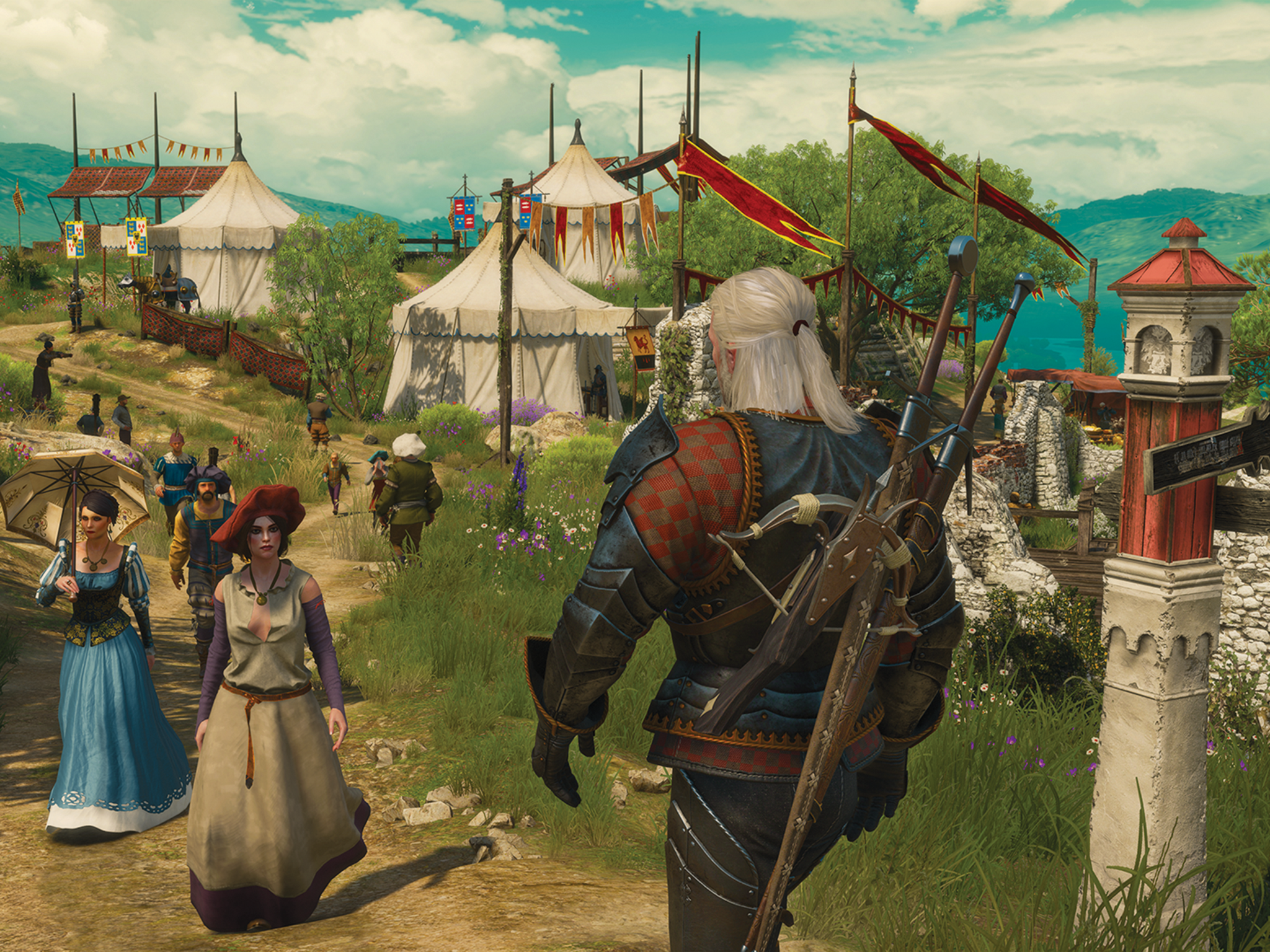
Families in the local area are being tricked into believing that if they can’t afford to feed another child, they should send it into the forest following a “trail of treats” to the witches’ house, where, rumour has it, they’ll never go hungry again. Unfortunately, that’s because they’ll be fattened up and then hastily consumed by the crones.
Tell Philip about Anna’s whereabouts and he’ll go directly to the swamp with soldiers, only to find a broken version of his wife undergoing a psychotic breakdown. The teenage Tamara, meanwhile, has joined a group called the Eternal Fire who she’s decided to stay with even if her father takes her mother back.
The most obvious way in which a game like The Witcher deviates from the industry’s traditions is that there are no goodies and baddies, no evil terrorists versus righteous governments or oppressive regimes versus courageous freedom-fighters
“You’re right to be cross. I was not the best husband, the best father – I know,” Philip tearfully says to his daughter, attempting a family reunion in the swamp when all of this comes to light. Tamara is steadfast and you allow her to leave with the leader of the Eternal Fire: she’s chosen her own path now, and she has her own life away from the tumultuous home of her parents.
Later, you come across members of the Eternal Fire burning non-humans like you at the stake – turns out their name was a little more literal than you assumed. Tamara, you realise, having witnessed abuse and violence throughout her childhood, has now committed herself in adulthood to a controlling authoritarian at the head of a murderous cult. Should you force her away from the group? Should you challenge the cult leaders? Or should you walk away, accepting that not everyone along your path can be saved?
***
This family’s story makes up just one side-quest in The Witcher 3: Wild Hunt, a video game which I should have hated. First of all, the fact that it’s a video game at all ought to have put me off: I haven’t touched a console controller since I was seven and my brother made me be the Tails to his Sonic on his Sega Mega Drive, a piece of machinery that is now regularly sold off as “vintage” by collectors on eBay.

Second, the PlayStation 4 box which The Witcher arrived in looked spectacularly unpromising: a grizzled man with a token facial scar, a beard and a heavily armoured suit glared out from it while simultaneously pulling a sword from a hilt. It looked like a still from one of those dick flicks where men roar at each other before dying heroically on miscellaneous battlefields for hand-wavingly “noble” causes. I eyed my boyfriend with distrust.
It was he who had convinced me to give gaming a go, two years after the “Gamergate” controversy where a number of women working in the industry were targeted by misogynistic harassment campaigns. The genesis of this was an extremely long blog post written by Eron Gjoni – the ex-boyfriend of a game developer called Zoe Quinn – which went into salacious detail about their relationship, made public a number of private conversations between them on messaging apps such as Facebook Chat, and claimed that Quinn, the independent developer of a game called Depression Quest, had treated him badly throughout their relationship.
Many felt that this blog, which appeared just as Quinn’s star was rising in the gaming industry, was intended to put the brakes on her career. Depression Quest was a quirky, narrative-heavy game focusing on mental health: it went against all industry expectations of what a successful game should look like. Bafflingly to some, it received almost universal critical acclaim. Gjoni and others heavily implied (without evidence) that Quinn had traded sexual favours for good reviews.
A lot of people ended up getting sucked into the black hole of toxicity surrounding Gjoni’s blog post. Online platforms where dedicated gamers often posted, such as Reddit and the infamous 4chan, became central to the cultural war which raged over Quinn’s supposed infidelities, “ethics in journalism”, feminism and antifeminism. It spilled over into coordinated voting on awards for science fiction writing and pressure campaigns on advertisers. Another female game developer called Brianna Wu received 45 death threats at the height of Gamergate merely for weighing in with her own opinion, and feminist journalist Anita Sarkeesian – who had covered the controversy in an online video series about gaming – was forced to cancel a planned speech at a university after three separate anonymous threats were made on her life and the lives of the attending students.
Gaming, in other words, hasn’t exactly got a reputation for being woman-friendly – and that’s without even factoring in the run-of-the-mill objectification of female characters within the games: the Lara Crofts with huge breasts bursting out of their crop tops, or the cheerleaders with pigtails mounting phallic chainsaws while pouting suggestively at the viewer.
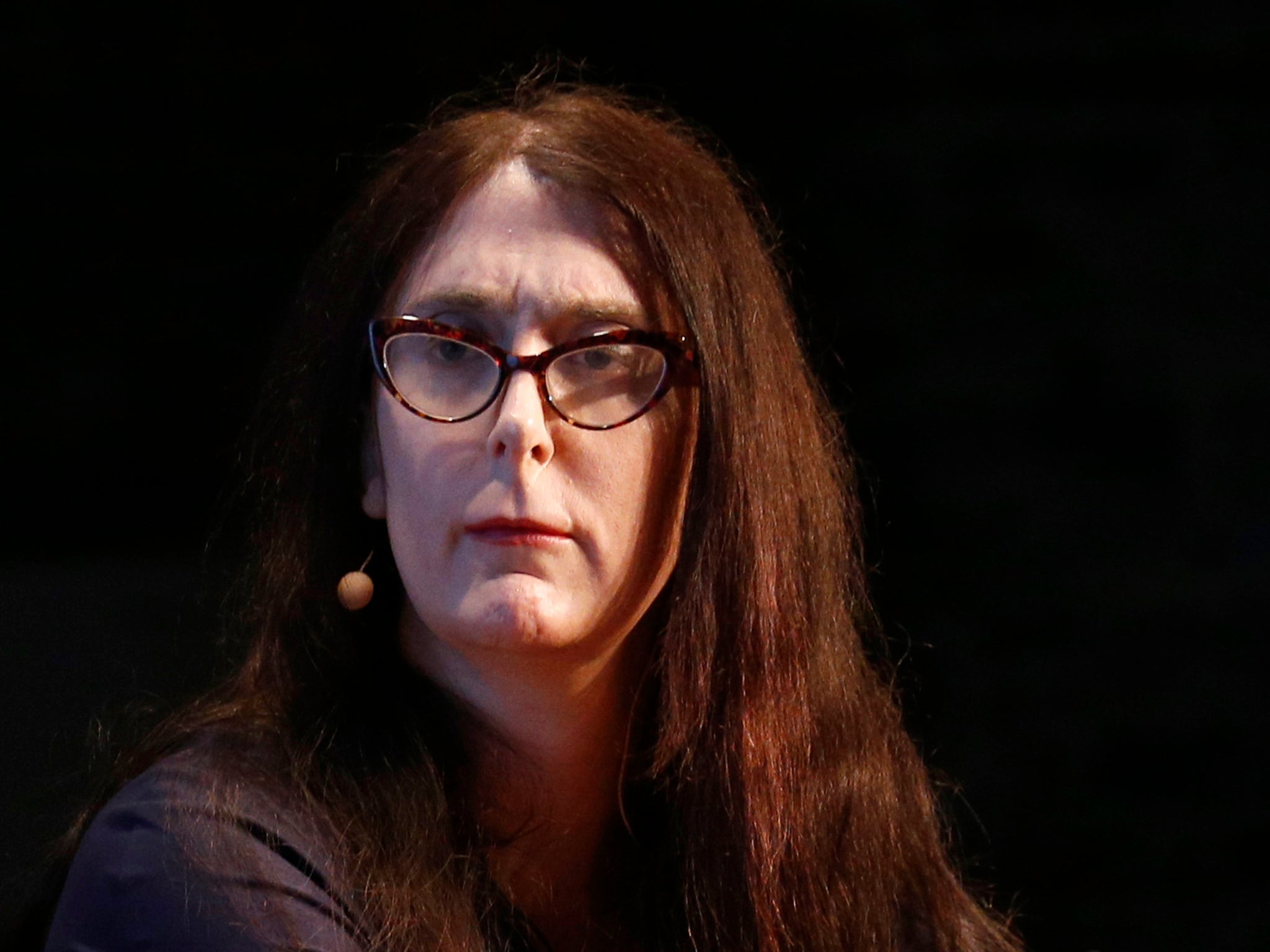
Websites and magazines which cater to self-identifying geeks are replete with articles like the one titled “Top 15 Hottest Women in Video Games”, where pretty much every character featured has a low-cut outfit showing lots of cleavage and a pair of tiny thigh-skimming shorts, despite the fact that many of these women are supposed to be frontline soldiers in post-apocalyptic landscapes or alien creatures defending their planets from invasion. You’d be forgiven for thinking their attire is just downright impractical while scrolling through topless vampires, combatants in miniskirts and busty purple extra-terrestrials who make sure to keep those ample digitised breasts on full display while encasing every other body part in metal armour, including their heads.
But for every stereotypical basement-dweller masturbating over anime characters, there’s a plethora of men and women (as well as boys and girls) who now demand games with plausible narratives, character development and realism.
The Witcher’s central quests were based on relationship-building, logic and investigation. It even has its own internal card game called gwent, which every character in the world will play with you if you ask, simply as a bit of supplementary entertainment. So popular has this invented card game become in its own right since The Witcher’s release that the official gwent Twitter page has 72,500 followers and a spin-off hardcover book with original artwork called Gwent: the Art of the Witcher Card Game is available in a number of different languages.
Such dedication to world-building is now expected by game developers, but it takes a lot of time money and effort: The Witcher 3 took three and a half years to make, with two and a half years dedicated to voice recording for the numerous quests a player can choose to take as they cross the game’s huge map and visit all the towns, cities and villages in the Witcher world. Gaming site Kotaku has reported that each quest in the game required one writer and one quest designer: the writer sketches out the original idea for a story; the quest designer then builds out the narrative, the structure and the imagery required to bring that story to life; and then they work in tandem to finalise dialogue, interactions, consequences and different branches of possible developments in the storyline according to what the gamer – via the protagonist character, Geralt – decides.
Not every dedicated gamer will celebrate the industry’s movement from niche interest to recognised art form: some will come kicking and screaming into the light. But gaming is for everyone now
Altogether there are 405 such quests in The Witcher 3, and completing them all would take a player around 220 hours. You might be able to squeeze them in to around 200 if you don’t hesitate too much when you’re told to choose between sacrificing your friend’s wife or a group of children; or whether to let a manipulative tree spirit free from an oaken cage when it promises not to wreak havoc after it’s released; or whether you should believe your highly dangerous and magical ex-girlfriend when she tells you that she’s looking out for your interests.
And it’s not just personal choices that might give you pause. The game consistently presents you with ethical dilemmas: should you hold a childlike imp responsible for causing mischief and misery in the human world, destroying a woman’s mental health by sending her constant, terrifying nightmares, when it has no moral understanding of the consequences of its actions? Should you protect a man from being hanged for stealing, even if doing so leads to the collapse of society and ultimately the deaths of many others? Should you step in to try to save an ailing, poisoned human woman with a potion you know works on non-humans, while running the risk that she could die in agony if it goes wrong? Should you challenge a fascist movement which punishes and drives out non-humans in a city you come across and thereby provoke open warfare?
And should you take Philip, the Bloody Baron, at his word and choose to believe that he’ll be a proper husband to his wife from now on – or should you withhold your forgiveness and live with the fact that if you do, he will end up taking his own life?
Often there is no simple answer: every choice you make has its shades of grey, its innocent victims and its undeserving benefactors. Some which appear straightforwardly positive will have negative consequences further down the road, in a different town, with a different family, eight hours after you completed the original quest, such is the game’s staggering dedication to the butterfly effect.
The most obvious way in which a game like The Witcher deviates from the industry’s traditions is that there are no goodies and baddies, no evil terrorists versus righteous governments or oppressive regimes versus courageous freedom-fighters. Geralt acts alone in The Witcher, merely making decisions about which groups to interact with while taking care of his own personal interests.
There are games which take this idea a step further. Fallout 4, for instance, which is set in a dystopian world 50 years after a global nuclear war, demands that you join a clan not long after your avatar is released into the ravaged landscape, immersing yourself entirely in factionalism.
There’s the Railroad, an underground-dwelling cabal of revolutionaries who believe in fighting for the rights of humans and synths alike (synths are robots which have acquired sentience, and which many others wish to exterminate or enslave.) Then there’s the militant, technologically advanced Brotherhood of Steel, which has no sympathy for the synths or for weaker human beings, and exterminates almost everything in its path. Or you can choose the Institute, a sterile utopia built in the middle of the rest of the world’s destruction, where discipline is compulsory and synths are servants. Finally, there’s the option of going it alone, which is almost impossible considering the extra help you’ll need to complete the game.
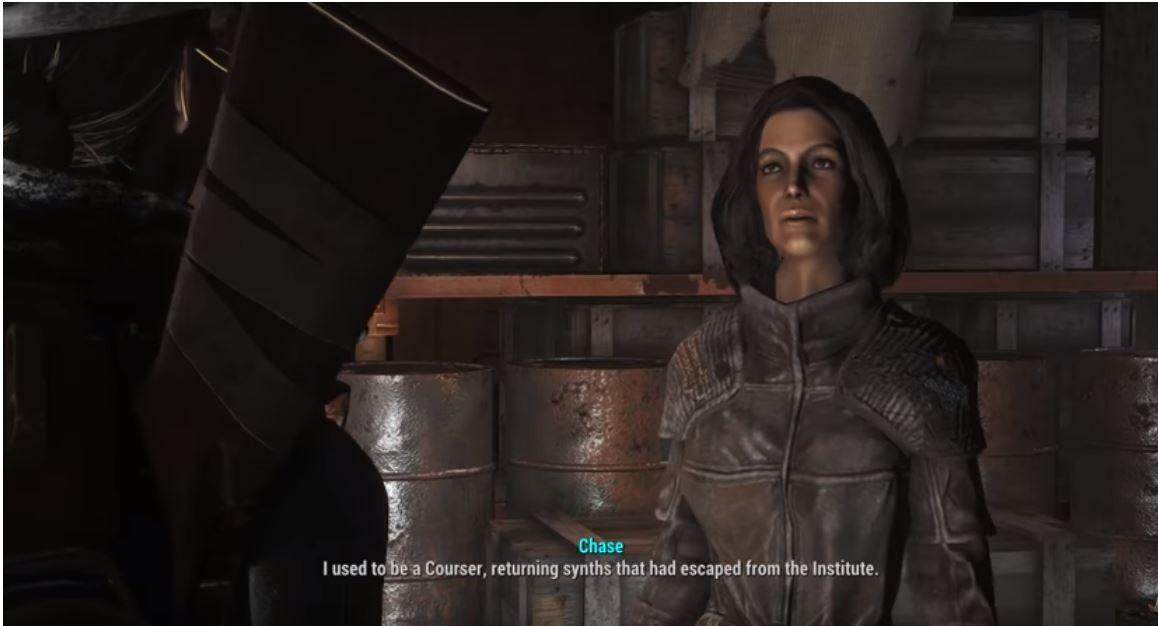
On my first play of Fallout, I chose the Railroad: they had a friendly dog; they preached compassion for all; and they were gender-neutral in their approach (there didn’t seem much for my female protagonist in a “brotherhood”, and the Institute had worrying whiffs of the patriarchy.) But then members of the Railroad infiltrated the Institute and came up with a grand plan to liberate the servant synths by killing everyone in one wing of the building. That meant shooting friends you’d made during fact-finding missions inside the Institute, innocent scientists working for a better world who you knew had partners and children, and wiping out a load of synths who were in the wrong place at the wrong time as “collateral damage”.
Some members of the Railroad had developed an evangelical zeal about their mission that obliterated common sense and made a mockery of the compassionate world they’d fought for; as their members were picked off and killed by fighters from the Institute and the Brotherhood of Steel during various missions in the game, they’d become demoralised and then, eventually, hardened. By the end, it was a choice between agreeing to their extermination plans or betraying the last of them to the unforgiving security personnel at the Institute. I finished the game feeling emotionally depleted and completely unsure whether I’d done the right thing.
Little wonder, then, that players of these sorts of games obsess over what might have happened if they’d chosen a different path. If you want a peek into that parallel universe where you didn’t kill the synths or set fire to the Institute or allow an elf to be arrested for treason, you need look no further than the live streaming platform Twitch, which has more than 15 million daily active users as well as 2.2 million “broadcasters” who upload videos of themselves playing games for the viewing pleasure of other people. Twitch says that 81.5 per cent of its users are male, with most of those between the ages of 18 and 35; a neat little coloured graph on its site shows that more than 70 per cent of millennials in the US have played at least one video game in the last 60 days.
A random visit to Twitch and a search for anyone currently broadcasting gameplay of The Witcher 3 showed me 54 live streams available across the world, including users from Turkey, Russia, Poland, Denmark, Portugal, Canada, China, Germany, Spain, Korea, France and Bulgaria. Clicking on a stream from the list led me to a live broadcast of someone playing the game, as well as a widget which told me how many people had watched this particular user play (over 14,000) as well as how many were watching at the same time as me (147.) “Welcome to my channel!” the user (FairlyOddPanda) had written below a stream which showed their real-time gameplay. “I’ll be streaming a mix of RPG myth and magic-type games with more light-hearted ones in chilled streams to relax and chat with viewers. Game requests are always welcome!” Below were the rules for the channel, set by the user: be nice; no spoilers; no spam; “Backseat gaming is OK in moderation”.
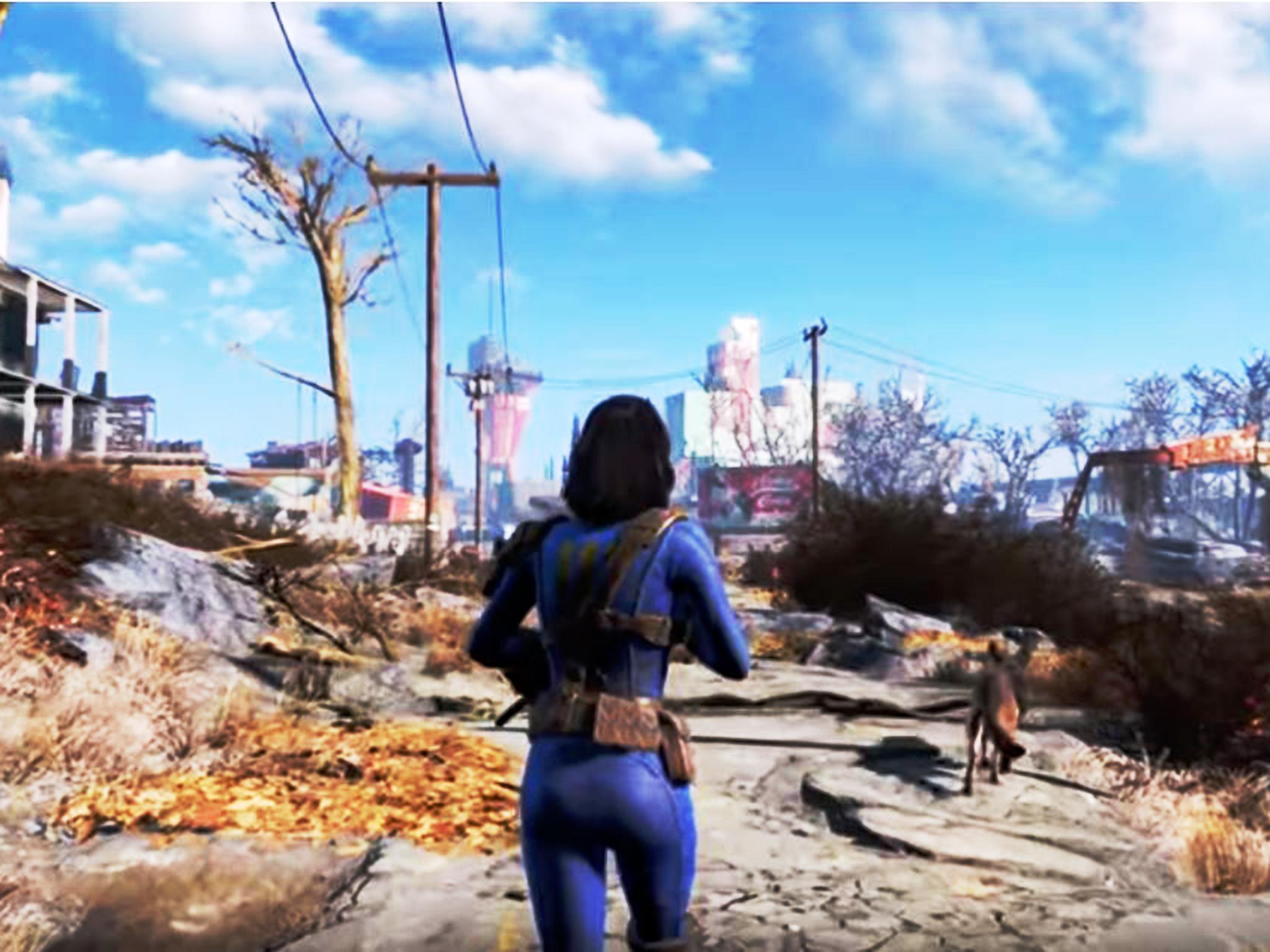
This is a whole other world, and a lucrative one at that. Twitch is a subsidiary of Amazon, having been acquired in 2014 by the retail giant for $970m (Google reportedly took a similar interest in acquisition but backed out for unknown reasons; Forbes speculated that it was because of concern about how the company’s ownership of YouTube might affect the deal). Since then, Amazon Prime users have been prompted to pay for ad-free Twitch membership as part of their package, and Twitch has entered into a two-year worldwide collaboration with games developer Blizzard Entertainment, which allows it to be the sole online broadcaster of Blizzard’s eSports tournaments – massive events where gamers with razor-sharp reflexes turn up to play against each other on centralised consoles for a cash prize.
If you think these sort of tournaments sound niche, you’re wrong: the British eSports Association calculates that 10 per cent of the UK population follows or participates in eSports, and events with £20,000 prizes for the winners are being held with increasing frequency at Wembley Stadium, complete with live audience. Anyone who still rolls their eyes at computer games is cocking a snook at a huge contributor to the global economy; in Asia and some parts of the US, the prize money now runs into the millions every time a tournament is held. Dedicated gamers, once laughed at by their peers for their interests, are the ones who now laugh all the way to the bank.
ESports, however, were never going to capture my imagination in the way The Witcher or Fallout did: these competitive games are nearly always based around kill counts and simulated warfare (if you’ve ever seen a teenager crouched in front of a PlayStation with a controller in hand and a high-tech headset complete with microphone strapped around their ears, you’ve probably seen someone playing Call of Duty, one of the most popular eSports, which pits teams of digital soldiers against one another and relies heavily on players speaking to each other to coordinate their attacks).
Likewise, other games which I tried for the purposes of this feature – Assassin’s Creed, a game set in an impressively accurate depiction of 1860s London but which ultimately positions you as a goodie killing baddies in a variety of creative ways; and Far Cry 5, which challenges you to hunt down and destroy members of a murderous evangelical cult running riot in a visually stunning rendition of rural Montana – felt a bit too much like high-res excuses for the same old shooting-bad-guys scenes. And when you haven’t developed the muscle memory for console controllers in childhood, those scenes are frustratingly difficult to get through as an adult – especially if there’s no high-concept narrative light at the end of the tunnel.
I thought I’d seen every version of what the industry had to offer by the time I polished off the final cult members in Far Cry 5, but then along came Horizon Zero Dawn, a cinematic masterpiece of a game set in a world of robotic dinosaurs and matriarchal tribes.
Your avatar in this game is a young girl trying to work out her origins after being abandoned in mysterious circumstances as a baby. In her society, “motherless” is the worst insult anyone can throw at you and people are ritualistically ignored for the rest of their lives for minor incursions of the law. The world is sparsely populated with primitive tribes after the rest of humanity was wiped out for reasons initially unknown (in case you hadn’t noticed, post-apocalyptic landscapes are as popular with video games as they are with young adult fiction at the moment – and I’d posit that isn’t entirely coincidental). The game doesn’t shy away from asking the big questions: how relevant is religion to modern society? Why do we appeal to an omnipotent god when there’s so little evidence to support its existence? What does it mean to be an outcast – and how do societies benefit from scapegoating?

At one point in Horizon Zero Dawn, the protagonist – Aloy – appeals to a redundant piece of technology left over from before the apocalypse. It’s a piece of homeware akin to a Google Alexa or an iPhone’s Siri, with an integrated biometric scanner allowing the right person to enter a sealed room. In a robotic voice, it half-recognises the protagonist’s face and generates the response: “Corrupted code. No entry.” Watching elders of the tribe proclaim that Aloy has been able to speak directly to their god, All-Mother, and a mythology is born that All-Mother asked Aloy to heal corruptions within herself in order to proceed with a personal quest.
It’s moments like this which give Horizon Zero Dawn its edge: multi-layered scenes where humour co-exists with serious commentary on the nature of civilisation. Elsewhere in the game, a child who desperately wanted to make friends with an outsider but who was scolded by his intolerant parents grows up into a bigoted adult, advocating violence against tribal outcasts. Prejudice begets prejudice: that may be a tale as old as time, but it’s still a radical one for a video game to tell.
Nevertheless, the stories are becoming more sophisticated every day – and it’s not inconceivable that within a few short years, gaming will become mainstream enough and artistic enough to merit a position in the most prestigious awards ceremonies. In 2013, Paul Tassi wrote that “we don’t need a video game Oscars, yet”, but the industry has moved on since then; indeed, he predicted that it would, writing in the same article: “We’re approaching a day when video games are populated by actors, not just voice actors, and more and more film and TV celebrities will likely cross over.”
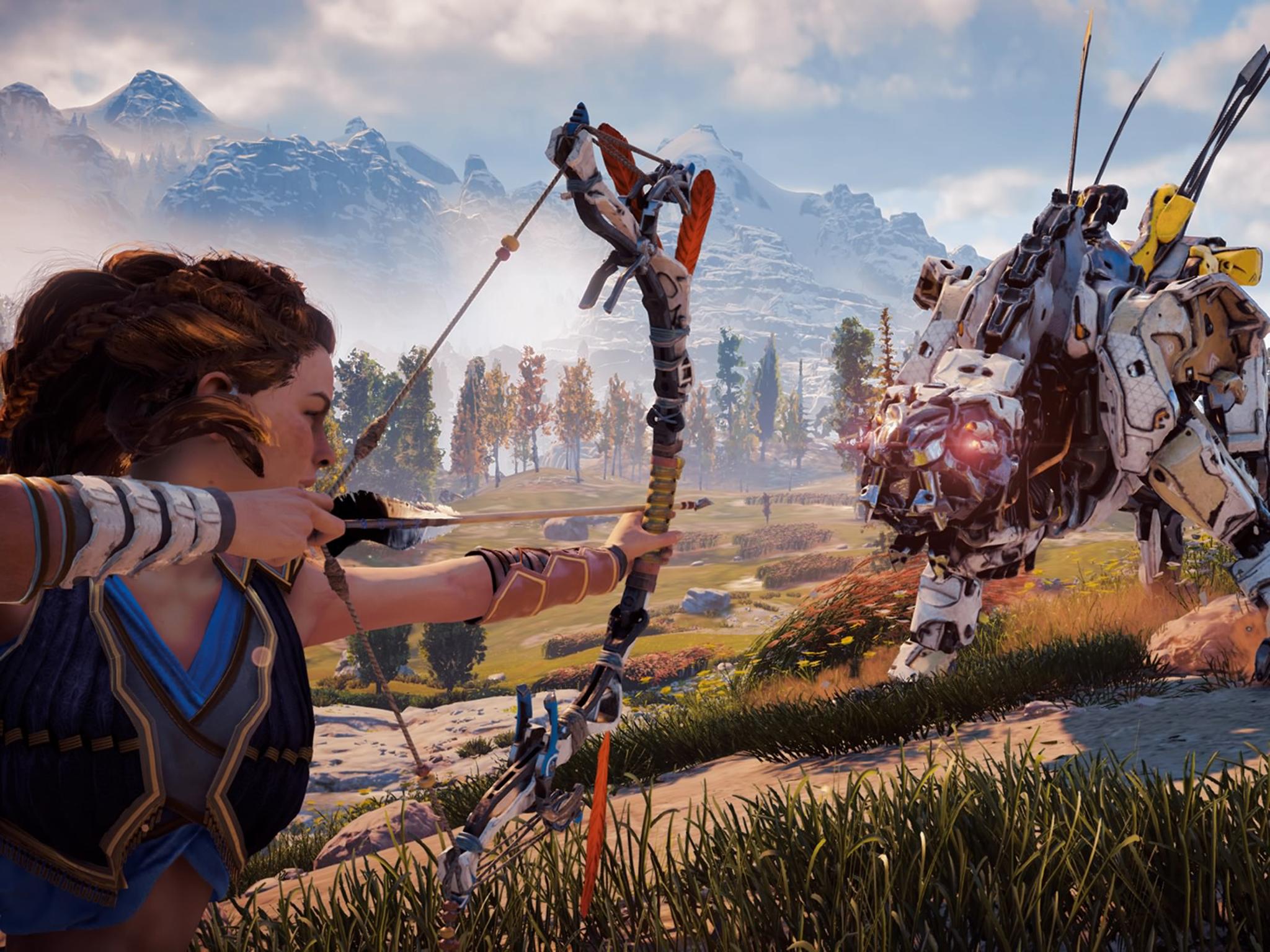
At that point, he thought, the quality will have become high enough to invite games developers into the awards shows and dedicate them trophies of their own. Frankly, that seems too cautious a viewpoint. The quality in many areas of gaming is already high enough, and legitimising it will be the first step towards securing that deluge of celebrity interest predicted by Tassi. There is already a section of the Baftas which recognises games and games developers – we can safely presume that this will become part of the main show in the not-too-distant future.
Not every dedicated gamer will celebrate the industry’s movement from niche interest to recognised art form: some will come kicking and screaming into the light. But gaming is for everyone now; it is being claimed as an international art form by people who might never have held a Gameboy in childhood or salivated over Lara Croft in adolescence.
Simply put, it has become too big, too important and too good for everyone else to ignore – and it can only mature with the input of those who some would see excluded. Even the jobs within the industry are changing now: it’s not just The Witcher that employs full-time writers and quest designers. Two of my friends who studied English Literature at university now write video game dialogues for a living.

Perhaps, out of the violent threats, the misogyny, the “swatting” deaths and the finger-pointing that accompanies every real-life school shooting, something much more interesting will emerge: something that doesn’t demand to know whether you’re a goodie or a baddie but demands to know what a world that has been shaped by you looks like when you’re allowed to act with moral impunity; something that doesn’t just act as a cipher for the anger and prejudice you can’t express in the real world but actively challenges your core assumptions and your personal beliefs in an environment which allows for self-examination.
If that sounds ambitious, it shouldn’t. This interactive world will be where some of the most interesting storytelling of the 21st century plays out – so long as the people who currently feel excluded from it force their way in.
Bookmark popover
Removed from bookmarks